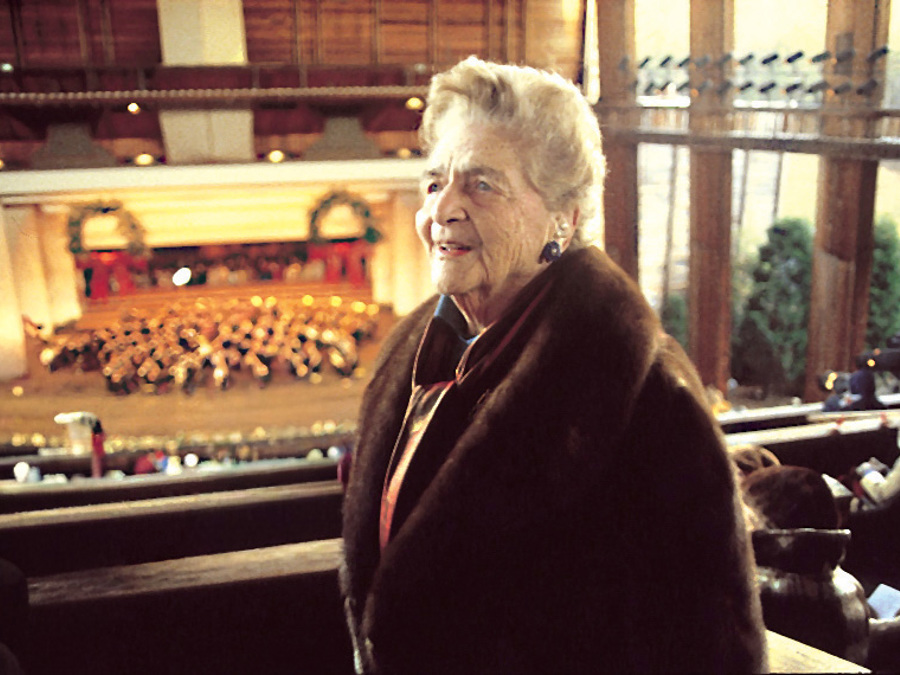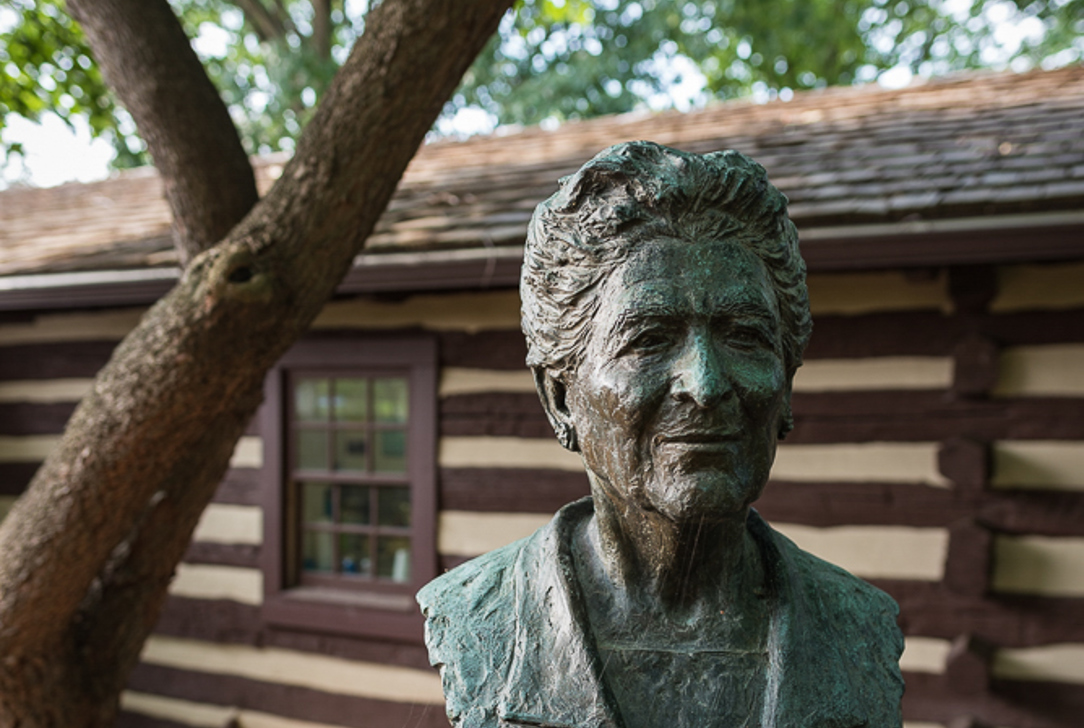Founder
Catherine Filene Shouse

Wolf Trap’s Visionary Founder
Catherine Filene Shouse (1896-1994)
Catherine Filene Shouse was a trailblazing leader, passionate arts advocate, and generous philanthropist whose bold ideas and creative vision gave rise to Wolf Trap Foundation for the Performing Arts and Wolf Trap National Park for the Performing Arts.
Born on June 9, 1896, in Boston, Massachusetts, Shouse’s family—founders of the popular Filene department store chain—valued service and civic engagement, and she would soon carve out her own path. She attended Wheaton College and later became the first woman to graduate from Harvard University’s Graduate School of Education. Her early career in politics and public service, including appointments by Presidents Hoover, Franklin D. Roosevelt, and Nixon, reflected her deep commitment to creating opportunities for cultural and educational advancement.
Shouse’s profound love for the arts, and for bringing people together through shared artistic experiences, ultimately shaped her greatest legacy.
Planting the Seeds of a Cultural Landmark
In the 1930s, Mrs. Shouse purchased several acres of farmland in Northern Virginia as a peaceful family retreat. Over the years, her land became not just a haven for her family but a stage for informal performances and cultural gatherings. As her passion for music and performance grew, so did her desire to share it more broadly.
By the early 1960s, Shouse envisioned transforming her beloved property into an oasis where the public could experience high-quality music, dance, and theater in a natural setting. To realize this dream, she donated 100 acres of her land, along with funds for the construction of a performing arts venue, to the US government. On October 15, 1966, President Lyndon Johnson signed Public Law 89-671, establishing Wolf Trap Farm Park—now known as Wolf Trap National Park for the Performing Arts—as the first and only national park dedicated to the performing arts.
A Legacy of Access and Inspiration
When the Filene Center opened in 1971, Mrs. Shouse’s vision was realized: providing a space where world-class artists, up-and-coming performers, families, and nature lovers could all gather to celebrate the arts. She believed in making performances accessible, family-friendly, and rooted in community—principles which remain central to Wolf Trap’s programming today.
In the years that followed, Mrs. Shouse sought new ways to expand Wolf Trap’s offerings with the creation of The Barns at Wolf Trap, two 18th-century barns that she purchased, reconstructed, and then formally donated in 1981. This intimate venue provided a permanent home for Wolf Trap Opera, which until then had been rehearsing and performing at offsite locations, and quickly became a vital space for nurturing young talent and presenting year-round performances. Mrs. Shouse also launched Wolf Trap’s Institute for Early Learning Through the Arts, an innovative program that brings artists into classrooms to help teachers use the arts as a tool for learning. These endeavors reflected a belief that the arts should enrich lives at every stage, from the youngest students to the most seasoned audiences and performers.
And her impact extends far beyond Wolf Trap’s performances and educational programs.
In 1981, Mrs. Shouse received the Presidential Medal of Freedom, the nation’s highest civilian honor, recognizing her remarkable contributions to American culture and civic life. She was also awarded the National Medal of Arts in 1994 for her enduring influence on the arts landscape. She passed away the same year, but her legacy lives on in the music, mission, and the magic of Wolf Trap.
Mrs. Shouse’s life achievements and influence spanned civic leadership, women’s empowerment, arts philanthropy, and environmental stewardship, as witnessed in her numerous honors and citations. From performances at the Filene Center and The Barns to educational programs at Children’s Theatre-in-the-Woods and the Institute for Early Learning Through the Arts, Mrs. Shouse’s legacy continues to benefit and inspire countless communities to this day.

Learn More
For more information about Mrs. Shouse and her accomplishments, please visit:
Wolf Trap: The Most Unique National Park You've Never Heard Of
Recognition upon induction to the National Women’s Hall of Fame (Seneca, NY)
Mrs. Shouse's Obituary from The New York Times
Catherine Filene Shouse I History & Culture (National Park Service)




